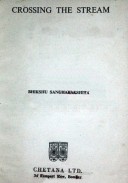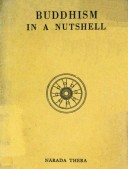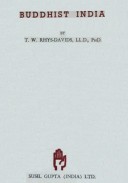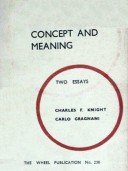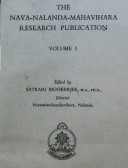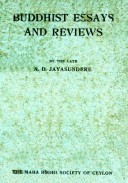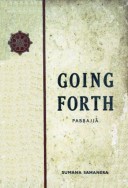Tìm Sách
Sách tiếng Anh-English >> The Dragon Image & Demon
Thông tin tra cứu
- Tên sách : The Dragon Image & Demon
- Tác giả : H. C. Dubose
- Dịch giả :
- Ngôn ngữ : Anh
- Số trang : 465
- Nhà xuất bản : S. W. Partridge & Co.
- Năm xuất bản : 1886
- Phân loại : Sách tiếng Anh-English
- MCB : 12010000005974
- OPAC :
- Tóm tắt :
The Dragon, Image, and Demon or The Three Religions of China Confucianism, Buddhism, and Taoism
PREFACE
During a visit to the United States in 1882, a lecture on the “Three Religions” was delivered in about 150 churches, and there were many requests for its publication. With further study the lecture has grown to its present size. Many of the best thoughts in this volume are obtained from the writings of Edkins, Eitel, Legge, and Beal; also from general works on China, missionary journals, and other sources. In every known case quotation marks are used, but the “quotation marks” do not always indicate that the passage is taken from an English work, for they are also used for translations. The writer has drawn his water from native wells, the facts being mostly gathered from Chinese sources. The pen is not held by one seated in a professor’s study, but by a plain man, who daily walks to and fro among idolaters, and testifies of what he has seen and heard. Some may discover errors in the work, and doubtless they will, for it is a book of errors, and where truth has no touch-stone how can error be detected?
The name chosen is the most exact representation that could be found of what each system is. The “Dragon” is the emblem of China and its State Church; the “Image” is a synonym for the Indian religion—it matters little the size, colour, or name of the image; and the term “Demon” is Taoism in a nut-shell.
These dark chapters are written in the hope that some small impetus may, by the facts presented, be given to Christian missions in China. We now need 3,000 ordained men to go “two and two” to the 1,600 walled cities of the Empire. Oh, that some reader might hear the Macedonian cry! If the heart is touched, shall not the hand send a contribution to the mission treasury? How many might give £200 a year to support a married missionary? How many churches might send out their own man? The finance of missions needs to be placed on a more definite basis; money to be raised by regular subscriptions, rather than depending on the collecting box. I write in a plain style so that boys may understand as well as men. When six years old, my father gave me a little red picture book, about Rev. R. Moffat in Africa; it took full possession of my soul, and in the “log parsonage” I resolved to go to the heathen. I trust that this book will follow every Christian boy that reads it like a policeman.
It is generally put down that when any one engages in a labour like this he does it to the neglect of mission work, so to exonerate oneself it is necessary to state that besides colportage, and constant street and tea-shop preaching, there has been an average of fifty sermons a month in the chapels. How can one expect the favour of God if he neglects what he is sent to do? The command is not “Go, write my Gospel” One of my teachers, an editor, gave the advice to the class “to save the joinings of time.”
The suggestion is made to younger missionaries that they orally translate some of the chapters of this book with their teachers, so as to familiarise themselves with the local idolatry.
As this is not a comprehensive work on the middle kingdom, but simply on “Religion in China,” there has been no opportunity to express my admiration for the many noble traits of national character,—the brightness of their intellects, the love of literature, the frugality and industry, the strength of the government, the solidity of their institutions, their peaceful dispositions, and their courtesy to foreigners. What a glorious country will the Land of Sinim—the land of promise— be, when they “turn to God from idols, to serve the living and true God, and to wait for His Son from heaven!”
H. C. D.
Southern (U.S.A.) Presbyterian Mission,
Soochow, September 30th, 1885.
CONTENTS
CHAPTER I
THE THREE RELIGIONS DOVETAILED.
The population and the length of time—No arithmetical division—The three in partnership—Emperor K‘anghe—The three are relatives—All three national—One man worships in three temples—Many of the gods are the same—Is the union beneficial?—The relative influence
CHAPTER II
THE CHURCH OF THE LEARNED
Not strictly a religion—No Creator—Pankoo—No Sabbath—The splendid morality—Vice not deified—The heart—Conscience—The Confucianist—Want of religion—Failed to elevate—The citadel
CHAPTER III
THE SEE OF PEKING
Heaven—The Son of Heaven—The Son of Heaven as the federal head of his people
—The minister of religion—The mandarin Priests—Imperial gold
—An anchor to the nation
CHAPTER IV
THE HIGH-PRIEST OF CHINA
The park—The Temple of Heaven—The Altar of Heaven—The procession—The sacrifice
CHAPTER V
THE ADORATION OF NATURE
Its antiquity—Ming dynasty—Pantheism—Heaven and earth— Earth—The sun—Moon-god—Eclipse—Gods of the Four Seas—The Water-god—The River-gods—Gods of the Mountains—Gods of Time—Gods of the Four Seasons—Gods of the Five Elements —Wind, thunder, rain, and lightning—Earl wind—Rain-master —Thunder and lightning—The Snow-god—The Frost-goddess—God of Caverns—Tree-god—God of the Willow—Gods and goddesses of Flowers—The Wheat-goddess
CHAPTER VI
ANCESTRAL IDOLATRY
All engage in it—Filial piety—An ancient cultus—Confucius—A son —Fear, the chief motive—Three souls—The ancestral hall—The grave—The home—The slavery..........77
CHAPTER VII
CONFUCIUS : HIS CHARACTER AND INFLUENCE
Dim light-Ancestry—His birth—His youth—The age—Marriage— Public teacher—Devotion of his pupils—A mandarin—A wanderer—Called of Heaven—A man of the past—The musician —Humility—Sinless—Ritualism—The silver rule—The marvellous—Prophetic—Superstitipus—Want of truth—The historian —His influence—The books and the altar—Death
CHAPTER VIII
THE CONFUCIAN SACRIFICES
Titles—The temple and the grave—Kings adore—His manhood—The god of office—Literary temples—The sacrifice—The school —His rank in the Pantheon
CHAPTER IX
CONFUCIAN GODS
God of Literature—star of Literature—God of War—Three primordial sovereigns—Five planetary gods—Five emperors—Penates or household gods—Door gods—God of Agriculture—Gods of the Tides—Golden-dragon king—Five dragons—Temple of worthies —God of the Classics—God of Writing—Written character— Mencius—Disciples of Confucius—Eight gods—Divine husbandman—Spirits of the land and grain—Gods of the precincts— God-constables—Prison-god—God of the City Wall—Guardian temples—Granary king—Eighth great king
CHAPTER X
BUDDHA, THE NIGHT OF ASIA
Name—Ancestry—Birth—Boyhood—Love at first sight—Indian paradise—Age, sickness, and death—The flight—The great renunciation—The hermit—Mara and his temptations—Attaining to Buddhaship—The heart of pity—His manhood—The tola of mustard seed—All flesh—Animal sacrifices—Esthetics—DiscussionS with the Brahmans—The Itinerant—His opponents —-The monastic system—Wheel of the excellent law—Teixpro- hibitions—Deer park—Brevity of life—The body—“ Know thyself ”—Birth, age, misery, and death—The ego—The previous existence—Parables—Prudent quail -Forget-favour, the merchant —The Mani-gem—The cunning tortoise—The foolish dragon— Miracles. The white elephant—In mid-air—The blind boy— Healing the sick—The threads of his robe—The stone—The dragons— The magician—Amusing incidents. The fishermen —Drunken elephants — The goose — The baby — Nanda — Monastery at Jeta’s garden—The feast—The parrot and the bull —Faith—Visits Heaven—Images—Belies—Death—Cremation.
CHAPTER XI
THE ORIENTAL BANYAN
Its importance—Missionary spirit—Fate in India—Introduction into China—Europe and Asia—Its slow growth—The emperors —Confucian opposition— Persecutions—Buddhist travellers— Pagodas and relics—Patriarchs—The schools—The canon—The forge of lies—The Sutra a fetish—Christian ideas—Its tolerant spirit—Beneficial effects—Revival of Buddhism
CHAPTER XII
THE THEOLOGY OP BUDDHISM
Atheistic—Natural science—The great Chiliocosm—The heart— Morality— Asceticism—Love—Emptiness—Nihilism—Meditation—Kindness to animals—Vegetarians—Sin—Redemption- Merit—Field of happiness— Transmigration—The gods strapped to this wheel—Nirvana.
CHAPTER XIII
THE WORSHIP OF BUDDHISM
Priests—Temple—Four diamonds—Matrey a Buddha—Wéito— Buddhas of the three ages—Shakyamuni, Wenshu, and Pouhien —The eighteen Lohans—The worship — Oracular response— Absence of devotion—Worshipping assembly-—Three vows— Prayers—In Sanscrit—Prayer for rain—Buddhist and Taoist calendar
CHAPTER XIV
THE IDOLATRY OF BUDDHISM
Three classes—Worship of the seen—Gods appear to men—Idol factory —Large images—Dedication—Idolatry as an industry— Building a temple —The nail cage—Tortures of Buddhism— Stealing candles—“Ye worship ye know not what”—Compendium of gods—Places of worship—Dei Majores—The abominations
CHAPTER XV
MOÙNTAINS, ISLANDS, AND FESTIVALS
Sacred mountains— Mount T‘ai—Poo too— Theological seminary— Religion as a holiday—Pilgrims—Idol processions—Heathenism fascinating—Theatricals
CHAPTER XVI
WOMEN AND BUDDHISM
Pleasant — Nunneries — Goddesses — Ancestral benefits— Buddha’s doctrine of women—Lake of Blood—Heathen mother—Dead child
CHAPTER XVII
THE HEART OF BUDDHISM
Buddhism and Roman Catholicism—Kwanyin, the goddess of mercy —Fragrant mountain liturgy—Magnet of the Church—Buddhist saviour—Amita and the Western Heaven—Amita—Magic name —Paradise 6f the West—The pure land—Born of a lily—The God of Hades—Doctrine of hell—City of Fungtu—Ten kings of hell —White and black devils—Vision of hell—Looking homeward —The mirror—The Undivided Hell—The earth prison—Miss Mang’s soup
CHAPTER XVIII
THE GODS OF BUDDHISM
Janteng Buddha—The dragons—Holding pagoda King Leẻ—The mother of Buddha—Master of the Lily Lake—Fix-light Buddha —Pouhien P‘usa—The sombre maiden
CHAPTER XIX
GODS OF THE PEOPLE
God of Wealth—God of Biches—Heavenly mandarin—Kitchen-god —God of Theatres—God of Horses and Cows—Sheep-god—God of Snakes—Holding-snakes god—God of Scorpions—Locust goddess—Gods of the Bed—Old Man and Woman of the Bed— Gold-god—Tea-god—Salt-god—Gods of the Compass—God of the North Place—God of the Soul-Gods of strength—God of Happiness—Wang Papa—Goddess of Travel—The Rambling god—God of Archery—God of the Wave—Field-ancestor god —God of the Favouring Wind—Bridge-gods—Lamp-god—Forty masters—Five or twenty-five gods —God of the Rough Gem— Little-boy god—Yin-dragon god —Yellow-dragon god—Silkworm god—God of the Year—Goddess of the Male Principle of Nature—Family gods of the Door—The Ting gods—Little Boy at the Well
CHAPTER XX
GODS OF TRADES
Carpenter’s god—Mason’s god—Fisherman’s god—God of the Net —Bacchus—Bean-curd god—God of Barbers—The Tailors’ god —God of Silk—Goddess of Embroidery—Ancestor of Jade—God of Musical Instruments—Juggler’s god—God of the Paper clothing Stores—God of Architecture
CHAPTER XXI
THE ABSURDITIES OP POLYTHEISM
Rain clothes dwarf—Monkey-god—God of Lice—Punch and Judy god—God of Fire-crackers—God of Cruelty—God of Revenge— Goddess of Manure—Goddess of Fornication—Goddess of the Corner—God of Shadows—God of Gamblers—Bad gods—The Emperor Show—Kiang T'aikung—The stone lion
CHAPTER XXII
TAOIST PHILOSOPHY
Laotsze—The lonely picture—Tao Teh king—Tao—Canons of wisdom and virtue
CHAPTER XXIII
TAOISM AS A RELIGION
Gradual evolution—Plagiarism— Alchemy—To become an immortal —The great extreme—Yin and Yang—Manichaeans—Rotation —Gods have sin—Gods may marry—Promotion—Gods of State —Appointing gods—The three periods—The thirteen boards—Taoist creation-—Variety temples—To escape the metempsychosis—Religious services for the living—The fairy crane— Saleof indulgences—Forgiveness hair-pin—Worshipping Heaven —Bribery in worship—Dreams—Tree of the rewards of good and evil—The Abacus—The tail-cutting mania
CHAPTER XXIV
POPES, PRIESTS, AND TEMPLES
The first pope—The heavenly teacher —An audience to the gods—The priests of Taoism—The abbot—The city temple, Soochow —The snorter and blower—The three pure ones—The lantern pagoda
CHAPTER XXV
TAOIST GODS
Pearly emperor—Tsusze P‘usa —The city gods—Assistants to the city gods—The mediator—The Eastern Peak—Empress of Heaven, or goddess of the Sea—God of Fire—Eight ministers—God of Pestilence—Three mandarins—Three mao—Five holy ones—God of Witches—Horse duke—Western Royal Mother—Three corpse gods—Day and night recorders—Road gods—Open Road gods—White-tiger god—Wang Ling Kwan— Military official
CHAPTER XXVI
MEDICAL DIVINITIES
Evidences of Christianity—Leu Chen Yang, the Chinese Esculapius —King of medicine—Hien Yuen and Chepah—Dr. Fox—Dr. Hwat‘u—Divine oculist—God of Small-pox—Liver-complaint and Stomach-ache genii—God of Measles—God of Luck—God of the Primordial Cause—Goddess of the Womb—Goddess of Midwives—Sleeping Buddha—The thirty teachers—Gods of the Body—Thanking the Earth-god—The peasants—Dedicated to the priesthood—Getting a prescription—The charmed water— Borrowing years—The criminal—Kidnapping pretty women
CHAPTER XXVII
THE STAR GODS
Goddess of the North star—Northern and southern bushels—Shooting the heavenly dog—Happiness, office, and age—The Cycle gods—The twenty-eight constellations—star worship—Good and bad stars
CHAPTER XXVIII
THE IMMORTALS
Divine fiction—P‘eng Lai islands—Five kinds of immortals—Eight immortals—Han Chunglee—Tdh Kwalee—Chang Kwulao—Han Siangtsze—Lan Ts*aiho—Ts‘ao Kwohk‘iu—Ho Sienkoo— Gods of Marriage—The immortal ma—Two brothers and the dog—The rosebud immortal
CHAPTER XXIX
AFTER DEATH, THE SEVEN SEVENS
Fear of death—Corpse—Fungshuy—The four death ceremonies— Lamps—Bathing the soul—Crossing the bridge—Scattering the cash—Ornamental hangings at funerals—Tossing the cymbals—Masses for the dead—At the temple—The Noxious god—Remembering the dead—Feast to the soul—A priest next time—The last ceremony—Magic credentials—Funeral procession
CHAPTER XXX
DEMONOLATRY
Calling back the soul—Accompanying the guest—Charms—Chung Kw‘ei—Fifth moon, Fifth day—street guards—Spirit of the house—Cleansing the house—Floating water-lamps—Paper clothing store—Preparation for Heaven—Bank of Hades— Travelling in Hades—Headless ghosts—Cannot die in the inn —Suicides—Drowned spirits—Lunacy—Demoniacal possession —Catching demons—China, the land of demons—The Breath of Death—The great feast of spirits—The devil’s procession— Conclusion
Index
 Facebook
Facebook
 Google
Google
 Google+
Google+


